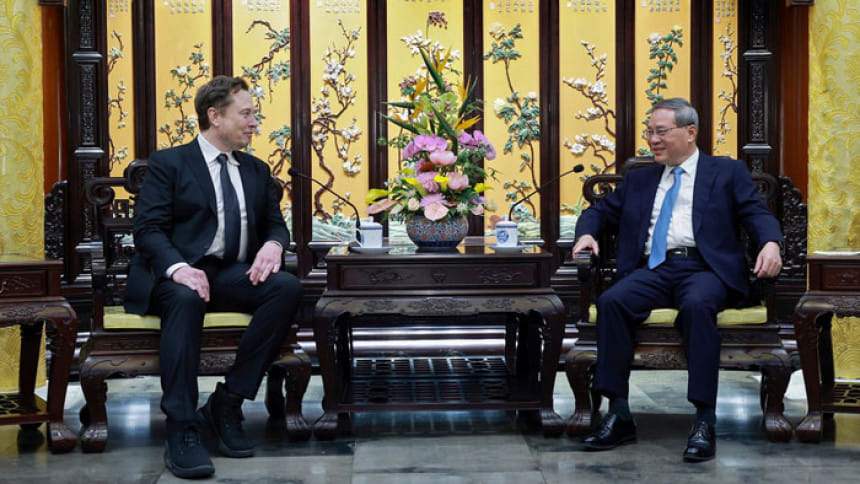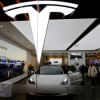What is Elon Musk doing in China?

Elon Musk's recent visit to China has stirred significant interest and speculation, drawing attention to the purpose and implications of his journey. Musk's visit, the details of which were mostly kept secret, was primarily aimed at the rollout of Tesla's Full Self-Driving (FSD) software in China, as well as receiving necessary permissions for data transfer regulations.
According to a recent report by Reuters, Musk's agenda encompassed negotiations with Chinese Premier Li Qiang and other high-ranking officials to navigate the regulatory landscape around FSD software and obtain the necessary green light for Tesla, as per insider sources familiar with the matter.
The necessity for data transfer permission stems from the fact that EV automakers rely on data from their cars to train autonomous driving systems. Without the necessary approval from China, Tesla is unable to go ahead with the data transfer used in Chinese cars, which will hamper the development of autonomous cars in both China and other countries. While progress has been made on various fronts, the ultimate success of Tesla's endeavours in China hinges on navigating these regulatory hurdles effectively.
Key achievements during Musk's visit, according to the Reuters report, included an endorsement from a top Chinese auto association, which stated that Tesla's Model 3 and Model Y cars are compliant with stringent data security regulations. This endorsement is expected to pave the way for Tesla to penetrate previously restricted areas within China.
A report by The New York Times on Musk's recent China trip highlights that a deal with China will help Tesla establish fully autonomous driving in a market as big as China's. With approximately half of Tesla's vehicle sales emanating from China and a substantial portion of its production capacity based in the country, the stakes for Musk's visit were undeniably high.
Furthermore, the Reuters report stated that Tesla has struck a strategic partnership with tech giant Baidu, securing access to its mapping licence for data collection on China's public roads. While Tesla has not officially confirmed any of these Chinese deals yet, a collaboration between Tesla and Baidu is expected to solidify Musk's company further in the competitive EV landscape.
In light of Tesla's recent challenges, including declining EV sales and cost-reduction initiatives, Musk's proactive engagement in China signifies the company's priority to the development of self-driving technology. Despite the complexities and uncertainties surrounding regulatory approvals, reports suggest that Musk remains optimistic about the prospects of rolling out FSD in China.

 For all latest news, follow The Daily Star's Google News channel.
For all latest news, follow The Daily Star's Google News channel. 








Comments